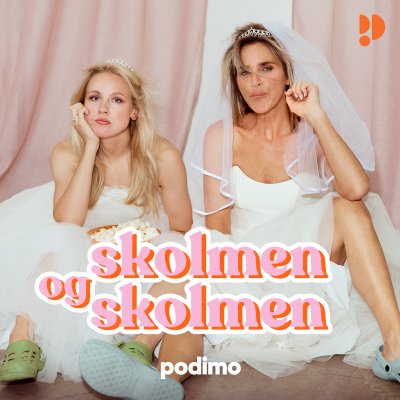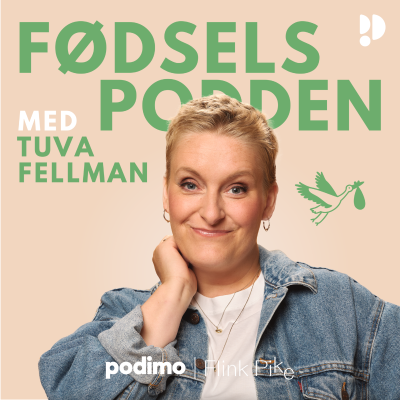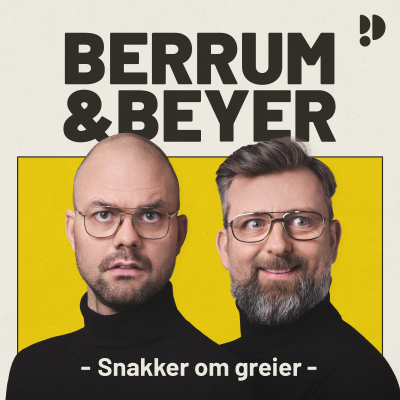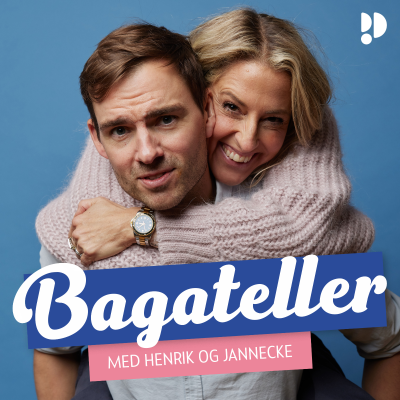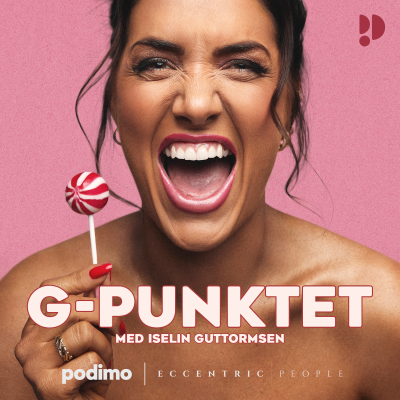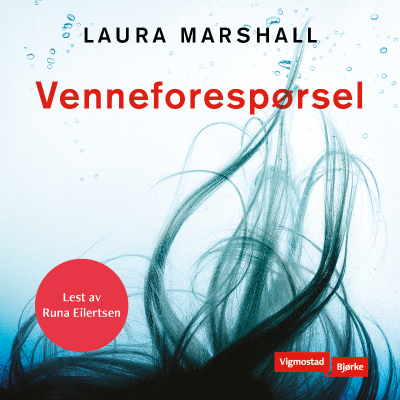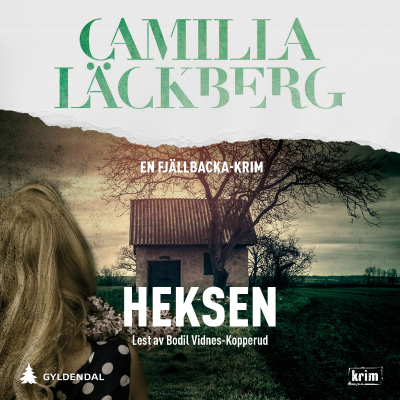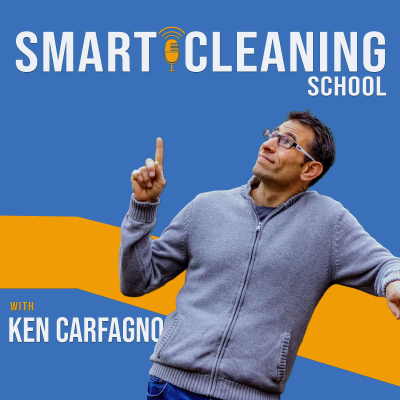
Smart Cleaning School
Podkast av Ken Carfagno
The Smart Cleaning School Podcast helps cleaning business owners from start-up to the struggling solo to the striving seven-figure get SMARTER in their businesses, reshape their mindset, increase productivity, clear the overwhelm, and get clarity through SMART goal-setting & personal accountability. Ken Carfagno is a lifetime learner and teacher. His mission is to help visionaries make the impact they were meant to make.
Tidsbegrenset tilbud
3 Måneder for 9,00 kr
Deretter 99,00 kr / MånedAvslutt når som helst.
Alle episoder
489 EpisoderLet's continue the Control Series! My first episode was "You Must Let Go of Your Control [https://www.smartcleaningschool.com/podcast/you-must-let-go-of-your-control]", where I shared a few major breakthroughs in my recent ability to let go and trust others. It was an important therapy session. I continued this recently with another breakthrough about your business is not you and viewing trust and control like a rope. Check out part 2 of the series called "The Trust Rope [https://www.smartcleaningschool.com/podcast/the-trust-rope]". This is the 3rd part that goes the complete opposite direction! Are you ready? I shared a Facebook post in early January that got a lot of comments and it wasn't because I did a good job. It was because I did a bad job and owned it. One of our largest customers dropped us. They accounted for 10% of our monthly revenue. It was painful. Their reason for dropping us was quality. Apparently, one of their bathrooms developed an orange film on the sink and our company left it there for weeks. There are so many angles I could take this. I could tell you about the onion principle, but I'll save that for another time. Instead, I want to take their reason at face value. They cancelled service because we didn't meet the quality specifications they required. In the first 2 episodes of this series, I honed in on breaking the control and perfectionism I had over me for years. It didn't bother me when I was a solo cleaner, but it reared its ugly head when we tried to grow a team. I had to change and I did! I gave some rope and then some more and then some more. I was checking the quality of each of our locations each month to maintain quality and keep our customers happy. But something happened that is scary. I got careless and allowed some buildings to go unchecked for more than a month because I had other things I had to do. Somehow, I pulled a total one-eighty going from an obsessive need to check every building every time to not checking at all. This wasn't true for all of our buildings, but it was for this one. After getting fired, I realized that it had been 3 months since I inspected the quality. 3 months! I could have seen the orange film if I simply would have done 1 measly inspection. 45 minutes of my time could have prevented the loss of 10% of our income. This was a tough pill to swallow. I gave away all of the rope and it cost me. Let's talk about two words. Quality and control. Quality is simply the level of performance or service that meets spec. It's not perfect, but it does meet expectations. That's quality. Control is the process or system of maintaining something. Put these two words together and you get a vital component of running a successful cleaning company. Quality control is the active feedback loop that maintains the expectations of the customer and keeps them happy. I used to be obsessive on QC, ensuring 100% compliance to every detail, every time. This was unscalable. In late 2022, I went to the other side where I nearly stopped all forms of QC, which is a slow death to any company. Here's the simple lesson. Don't operate on the extremes. Define quality in your organization. Train it. Inspect it. Maintain and work to exceed it. This will give you the balance to keep your rope light, burden-free, so your cleaning business can grow. I offer free coaching calls to listeners of this podcast. Do you struggle with quality control or perfectionism? Book a free coaching call on the Smart Cleaning School website at www.smartcleaningschool.com [https://www.smartcleaningschool.com/] to talk about it! You can also check out the many free & paid resources available on the website as well. I look forward to helping you!
This week started with content batching. Batching is an optimizer's tool for ultra productivity. Every month, I create blogs, podcasts, and videos for Carfagno Cleaning and Solo Cleaning School. It takes a ton of time to do each week. I used batching in my cleaning business and in other areas of business over the years. When Teresa's mom was available to watch the kids overnight, we jumped on the opportunity and grabbed a hotel for the night. I got so much done as I batched blog after blog after blog. We also enjoyed time together, so it was a win-win. The following day, I rented an office from my MCBA friend Vernessa Hopkins. Vernessa owns H3 Business Services [https://www.learnexcelsucceed.com/] in Harleysville, PA. The office was perfect and I was able to record all of my podcasts for the upcoming month. My batching goal was to invest a few days and dollars to complete all of my content for a month. I accomplished that! Please keep this in mind. The portion of my batching that related to my solo cleaning business was a small part, so it may not be necessary for you to batch your content. However, you may start sending out newsletters a few times per month, maintain your website, and repurpose content to Facebook and Google My Business. Batching would be a great idea for you at that point. I've been tracking each of my offices from Saturday to Saturday, so I know how long they are taking. Plus, I've made changes to get faster. Over the weekend, I had a difficult email to send. One of these office cleaning clients took me longer because of paint speckles and glitter on the floor as well as increased kitchen areas. I knew I'd have to say something or scope creep would get me! [Before continuing, check out the bonus video, "How do I Deal with Scope Creep [https://www.youtube.com/watch?v=ZOFXhqtIizw&t=2s]" on the Solo Cleaning School YouTube Channel. You'll learn how easy it is for your clients to unintentionally take advantage of you.] When the scope of work increases over time, it causes our cleaning times to increase. The great majority of cleaning companies will NOT raise the price as the scope changes so slowly they don't notice it. Not me! I recognized the potential Scope Creep setting in and knew I would have to send a difficult email. I used the sandwich technique with praise and gratitude in the open and close of the email. In the center, I laid out the areas where the scope has increased. Then I shared how this affects my company. "I clean five offices every Saturday right now. I'm in the process of adding more as well. So when one office starts taking me longer, it ends up costing me money. I'm sure you understand!" Then, I offered possible solutions which either forced them to take ownership and have the staff do more end-of-day cleaning or I would submit a new proposal with higher prices for the increased scope. I was nervous about the outcome as it was surely possible to lose the client, but I had to do this. It's my business and I must run it like one! Fortunately, they responded with consideration and we worked through the solutions together. Ultimately, they decided to take ownership for one portion. The other part, where they've added more kitchen appliances, we decided to alternate half-and-half each week. They gave a little and I didn't raise my prices. It also raised my image of trust and professionalism. Read the rest of this article at the Smart Cleaning School website [https://www.smartcleaningschool.com/podcast/best-of-scope-creep]
I've broken a lot over 15 years, but it's all relative. I have two mindsets to discuss before I share my cleaning misdeeds. 1. Your auto insurance company keeps actuarial tables and knows exactly how much an accident costs on average. These numbers are taken into account when you get and pay your annual insurance premium. In fact, it is designed to be a win-win. If you get into an accident or not, the insurance company still makes money. They win. Plus, your accident or claim is covered so you don't have to pay out of pocket. If you cost the insurance company too much money, they will raise your premium to ensure they make a profit and you can still be covered. Insurance is a product. We insure many things. One of those things is our business against general liability and bodily harm. Your business insurance company has the same actuarial tables and business model. I personally pay $550 per year in general liability and yes, I've had to use it once. The first mindset to take is this. You need insurance because things WILL break or get damaged! 2. I'm a former General Electric mechanical engineer and Six Sigma Green Belt. Six Sigma is a design system to minimize defects to 6 per million opportunities. It's an extremely difficult high bar in engineering design to achieve, that's why companies like GE and Motorola in the 90's and 2000's thrived. As a cleaner, I touch 500 things in each house or office. Over my 15 years, I've cleaned an average of 250 houses and 250 offices or 500 cleans per year. If you multiply the this out, I've created 3,750,000 opportunities to break or damage something. I call this a defect. Over this same 15 year mark, I have 75 defects. Continue the math and you'll conclude that my defect rate is 20 per million opportunities. 5 sigma is 233 defects per million opportunities. I've been cleaning for 15 years right on the cusp of 6 Sigma. In fact, I am literally a 6 Sigma Green Belt in my defect rate over the past 5 years as most of my 75 defects happened in the first 10 years. Therefore, my rate of damage or defect is as good as GE designs the airplane engines you fly with! Side note: If you're struggling with breaking or damaging things, first evaluate your defect rate. Feel free to assume 500 opportunities per house or office. Secondly, if your defect rate is over 50 per year, you need to make changes in how you clean. A few simple system changes and routine can fix it. Read the rest of this article at the Smart Cleaning School website [https://www.smartcleaningschool.com/podcast/best-of-the-stuff-ive-broken]
I've been cleaning homes since 2006 and have noticed a dramatic increase in home security as technology improves. Alarms have gone from wired to wireless. Cameras surveil various angles and locations of the home. Garages have keypads. Families are more secure than ever and they can do so at an expense less than it used to cost. This happens so predictively that economists give it a name. The early adopters pay the most like cell phones in the '90s or tvs in the '50s. Once the technology reaches critical mass (around 10% market penetration), the technology floods the market until it cheapens with market saturation around 90%. This is called 'S-Curve' economics. As a side note, this is a fascinating phenomenon to study. Home security has undergone the same S-curve. Check out this statement from a recent article [https://www.protectyourhome.com/blog/articles/2020/march/5-reasons-why-more-americans-are-installing-home-security-systems#:~:text=Around%252020%2525%2520of%2520homes%2520in%2C64%2525%2520in%2520that%2520time%2520period.] on the state of home security. "Around 20% of homes in America have security systems, but this percentage is expected to increase over the next five years. In fact, experts predict that the number of homes with security systems will increase by 64% in that time period." The early adopters of home security were in the '70's, '80's, and '90's. It took 40 years for home security systems to reach 10% market penetration or critical mass. It has taken roughly 10 more years to go from 10% to 20% of all homes secure in the US. This article predicts a jump to over 80% in the next 5 years! That's an 'S-curve' for sure! But I ask you. Is this normalizing effect causing homeowners to feel over-confident? Unfortunately, I've noticed another trend. Homeowners are forgetting to lock their windows at an increasing rate. I'm a detailed house cleaner and clean complete kitchens and bathrooms, baseboards, wood trim, light switches, window ledges & sills over the course of time. I treat every client as if I was cleaning for my own family. Therefore, I'm a noticer! One of my clients was away for 5 days vacation and scheduled cleaning on the day of their arrival home. While I was there, I noticed that all 4 windows on the first floor were unlocked! These 4 windows happened to be the ones to the left and right of the front door on the porch. This discovery made me uneasy, so I locked them and notified the family. They were so thankful. I notice unlocked windows more often in upstairs bedrooms. However, you'd be surprised how many windows I've locked in my 15 years cleaning houses on the first floor! I'm not a psychologist, but I will hypothesize. We are placing too much trust in our technology. Many homeowners in suburbia believe that their neighborhoods are safe. Therefore, they can leave their car doors, front doors, and windows open. If there was an intruder, the alarm system would pick it up. I learned recently from a bank professional that criminals are getting smarter too. They are not the Water Bandits from "Home Alone" that can be thwarted by a 7-year-old boy with lots of toys, tacks, and tar. These criminals are timing their crimes to steal from moms while they drop off kids at daycare. They target shopping parking lots. And they target the most "trusting" homeowners. I'm sure this is not new to anyone reading this. Read the rest of this article at the Smart Cleaning School website [https://www.smartcleaningschool.com/podcast/best-of-safeguard-your-clients]
I host an accountability & mastermind call every Monday for the SMART Cleaning Tribe. We are a family of cleaning service owners with teams (that used to be solo). I'm the architect of this group of amazing people, always looking for the 1% that desires to set monthly SMART goals and be held accountable to their achievement. Check out the episode "The Accountability Roadmap [https://www.solocleaningschool.com/podcast/goal-setting-iv-the-accountability-roadmap]" to learn more about the 1% club We had an interesting discussion this past week on the topic of client scope creep. This is when your original housecleaning scope of work increases with the changing dynamics of the family or home. We went around the group sharing how we each deal with this. Toward the end of this discussion, one of our members hit a home run. Kate Sloan is the owner of Chicka Chicka Broom [https://chickachickabroom.com/], which services Montgtomery, MN. She said. "I train my clients." Obviously, I could not let that slip through the cracks and asked her to explain. Kate contrasted the typical house cleaner to the perceived in-home experts such as electricians, plumbers, carpenters, and HVAC technicians. "Why are they viewed as experts and get expert-level prices and many devalue cleaners wanting to pay the minimum?" The answer is simple. Most clients are moms with cleaning experience. They can clean, therefore they don't see our craft as a specialty. Plumbers and electricians do work that the mom cannot do, therefore they are experts and can charge expert prices. One of the best ways to level-up as a cleaner to an expert or specialist is to acquire specialized knowledge. One example is taught in my "9 Mistakes in Disinfecting [https://www.solocleaningschool.com/podcast/9-mistakes-in-disinfecting]". If 90% of our clients are disinfecting incorrectly and we know how to do it right to protect their families, our value increases. This is the process to becoming the expert and separating from the typical cleaner. One further point on mastery comes from Malcolm Gladwell's "Outliers" book. He claims that it takes 10,000 hours to acquire expert status at any task. If you clean 40 hours per week, 50 weeks per year, you can achieve mastery in 5 years! Many of us have achieved this. Not many moms have, no matter how long they've been cleaning. What if they clean 2 hours per day and 6 days per week? It would take over 16 years to reach mastery. Some moms have achieved this and most have not. Make sure to study this episode as it holds a vital key in pricing to start earning you top income as a solo cleaner.
Tidsbegrenset tilbud
3 Måneder for 9,00 kr
Deretter 99,00 kr / MånedAvslutt når som helst.
Eksklusive podkaster
Uten reklame
Gratis podkaster
Lydbøker
20 timer i måneden

